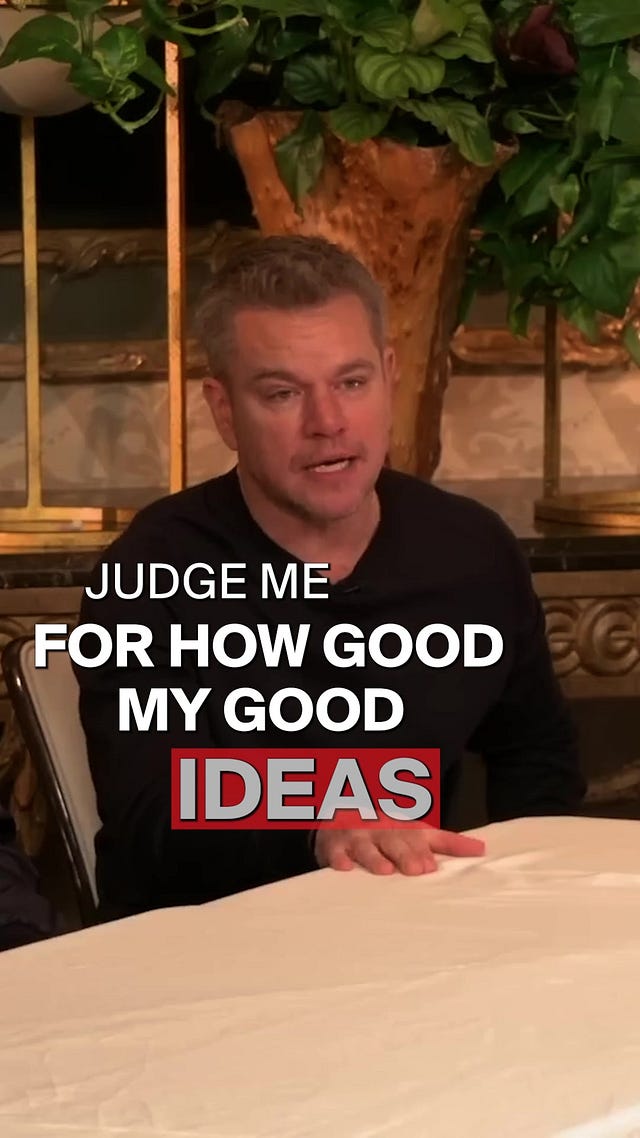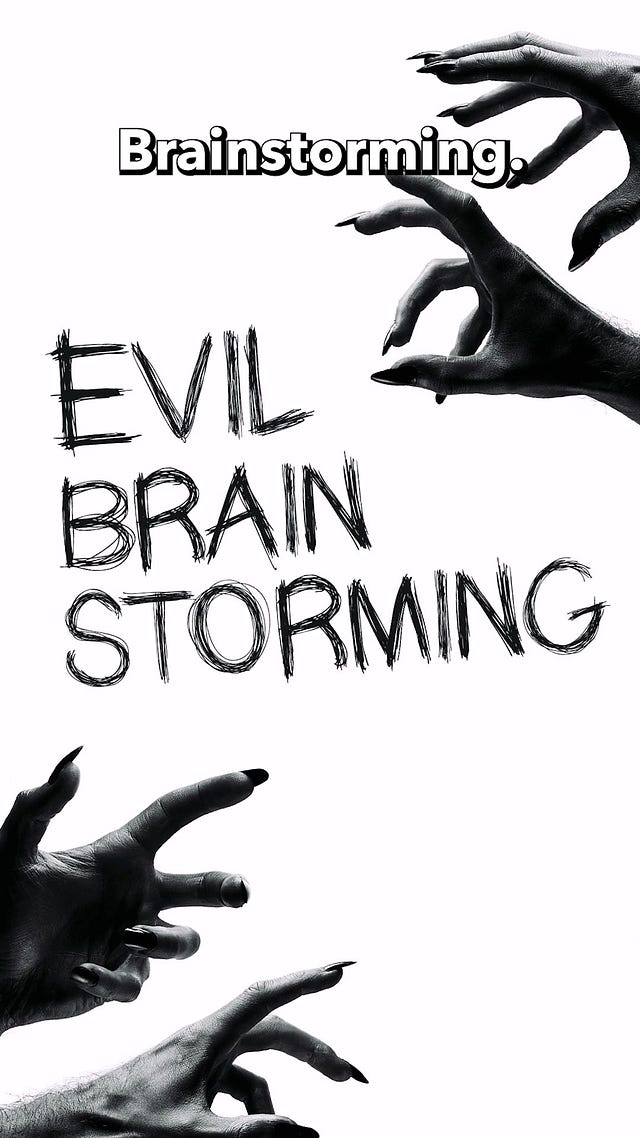🤗 Inneresting #148 - Go on. Be gentle with yourself.
You're the only you you've got.
But it’s hard, this business of being human. So let’s be kind.
– Brother Phap Linh, Plum Village

We’re almost a third of the way through the year. New Year’s Resolutions might have been ditched weeks ago. There’s plenty of uncertainty in the larger writing world. And maybe your allergies are going haywire since Spring showed up in lots of places like it took notes from John Wick.
There could be some self-inflicted errors in your life, like the people Jürgen Henn captures on video when they ignore multiple warnings and try to drive tall trucks under an 11 foot 8 inch bridge clearance.
But that doesn’t mean you can’t make space to go easy on yourself.
Ram Dass suggests removing judgement from yourself by thinking about yourself as a tree: a product of growing conditions and not just choices. Adam Mastroianni suggests shifting perspective when thinking about yourself as a writer: Don’t just think about deliberate practice, but about the parts of yourself you didn’t work at that make up your voice.
Finding your voice means figuring out what you wouldn’t mind being disliked for. You have to find some way of being where, if someone came up to you and said, “I don’t like the way you are,” you would say, “That’s all right, I still think this is the right way to be."
If you’re ready to try and reset, Mariana Vieria shares some strategies for revising goals into something more actionable (and reasonable) at any time of the year. Chelsea (aka Line Unfolding) turns to journaling and ways you can keep yourself on target while finding the right framing to build habits that mean something to you.
Even putting work out there in small pieces can feel challenging. Tracy Durnell looks at the emotional barriers to posting your ideas in a blog, and how to move past fear and perfectionism to make peace with vulnerability. Matt Gemmell reminds us that blog posts can be as short as social media posts, and that your personal publishing space can follow your rules.
Many challenges writers face exist in those 1,300 cubic centimeters inside their skulls. Mason Currey asks why writers have problems asking to be paid for their work. What about the modern writing economy creates friction between the impulses of a creator to make something that has value as an object, but also value as a commodity? Writing often requires solitude, and solitude can lead to loneliness. Marta Zaraska shares research on the ways that isolation changes the brain. Rach Smith takes on the misguided notion that your work needs to be even more perfect to make up for delays.
When I was on the mend, I decided I should probably get back to writing (and publishing), but I felt an old familiar anxiety around the first thing I wrote and published after my short break. I was examining where it came from when I realised that I was telling myself that the longer I put something off, the better it needs to be when I actually do it.
Why? I don’t know. Maybe it is the subconcsious belief that productivity = self-worth taking the wheel again. Perhaps I was under the impression that taking a break is only okay if you have something “good” to show for it at the end of the break.
You may not feel like you’ve got this right now. That’s okay. Sometimes we all need to pause and remember what’s important, or ask for a little support to get us over that next hill. To give ourselves the chance to let go of the things we carry that aren’t helping us.
Going easy doesn’t mean you stop going forward
A Write Sprint is a tool to get you moving. Don’t build it up to much. It doesn’t need to be perfect.
What’s a Write Sprint?
John wrote up an explanation, but here’s the short version: Set a timer for 60 minutes, close down all distractions, and do nothing but write until that timer goes off.
FYI: You no longer need to use the Substack app to participate in chat! The Write Sprint thread will now open in any browser and allow subscribers to join in.
Shout out to last week’s Sprinters John Harvey, Brian Matusz, Oli Lewington, and Aimee Link!
Are you new here?
Inneresting is a weekly newsletter about writing and things that are interesting to writers. Subscribe now to get more Inneresting things sent to your inbox.
Previously on Inneresting…
In case you missed it, in last issue’s most clicked link Josie Santi rounds up a shortlist of film tropes that are used to bring characters together, but mask problematic relationship ideals.
Other Inneresting Things…
A feature length music video of dancing through New York City set to Girl Talk’s album All Day (one of the greatest mash-up albums of all time).
Go rummaging around for vintage digital files: DiscMaster catalogues files ripped from CD-ROMs uploaded to The Internet Archive
As the WGA contract negotiation deadline looms, John speaks with Alissa Wilkinson about the importance of framing the conversation around AI’s use in the entertainment industry and making sure writers are protected.
It’s very easy to imagine a situation in which a studio uses AI to generate ideas or drafts, claims those ideas are “source material,” and hires a writer to polish it up for a lower rate. “We believe that is not source material, any more than a Wikipedia article is source material,” says August. “That’s the crux of what we’re negotiating.”
Reading the room


 Tiktok failed to load.
Tiktok failed to load.Enable 3rd party cookies or use another browser

And that’s what’s inneresting this week!
Inneresting is edited by Chris Csont, with contributions from readers like you and the entire Quote-Unquote team.
Are you enjoying this newsletter?
📧 Forward it to a friend and suggest they check it out.
🔗 Share a link to this post on social media.
🗣 Have ideas for future topics (or just want to say hello)? Reach out to Chris via email at inneresting@johnaugust.com or Mastodon @ccsont@mastodon.art


